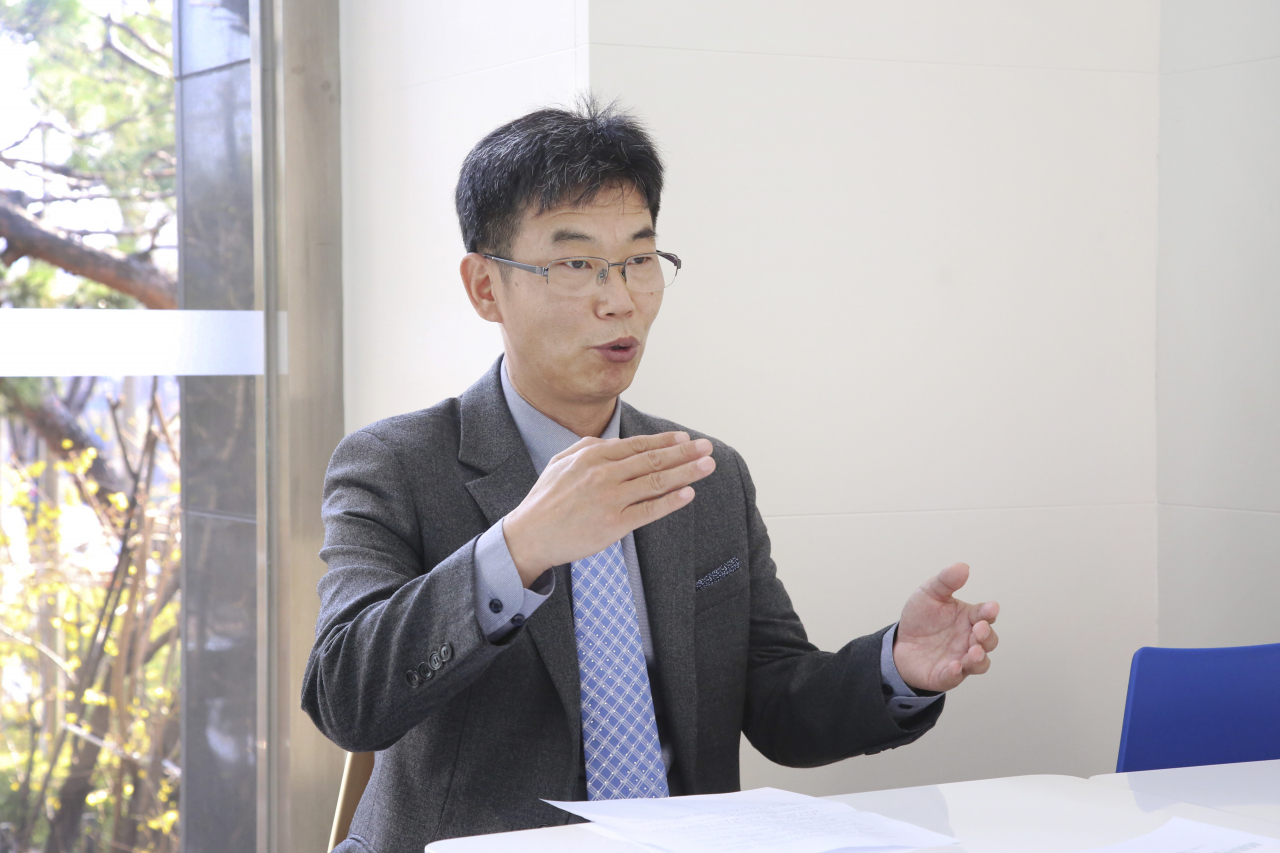 |
Gam Byoung-woo, chief of product development division of Daedong Corporation, speaks to The Korea Herald during an interview Monday in Seoul. (Daedong Corporation) |
South Korea's agricultural sector has faced a labor shortage for decades, with aging farmers and a shrinking population. To keep the rural economy sustainable, one solution might be to deploy autonomous machines that are operated through smart connectivity.
Gam Byoung-woo, chief of product development division of Daedong Corporation, said his company, the largest agricultural machine manufacturer in Korea, has been offering solutions to precision farming, calling it AgTech.
“If traditional farming relies on the experience of farmers, smart farming with AgTech is about collecting diverse data of the farming environment to provide just the right amount of fertilizer and water to maximize productivity in farms," said Gam in an interview with The Korea Herald.
"We have been providing such solutions since 2021 and have proven it has decreased 6 percent of annual fertilizer usage and increased 18 percent of annual productivity compared to the previous year."
Daedong has been also focusing on introducing e-mobility products that can be driven autonomously.
“Electric machines allow farmers to work in a better environment with less noise and zero pollution and it reduces maintenance costs," he said.
"If we can gain price competitiveness, we expect the demand of our electric machines to continuously increase."
E-mobility products that Daedong has developed so far not only include agricultural machines such as the CK350EV tractor but also last-mile mobility products such as a BSS-based electric motorcycle and mini electric cars.
Daedong exports 65 percent of its products overseas. Of the total, 80 percent are bound to the US.
“A lot of countries, including the US, are strengthening carbon emission regulations on agricultural machines. So we are in hurry to make all-electric agriculture machines," he said. "We have started with small electric tractors and will move on to mid-to-large-size electric tractors. We plan to introduce our products faster than any other global competitors to lead the market."
The Daedong executives said he believes that electric and autonomous machines would eventually evolve into robots for agricultural use, and such technological advancement would contribute in promoting mechanization of precision farms where 40 percent of crops are still cultivated by human labor. As of 2020, the mechanization rate of rice fields reached 98.6 percent.
Though the plan sounds promising, the company still faces some impediments in its endeavor to shift agricultural machines into electric ones.
“First, it’s really costly to make electric machines at the moment, and then there is the problem of lacking a charging infrastructure. We need the government to increase subsidies and help establish such charging infrastructures,” he pointed out.
To promote its future role, Daedong plans to take part in the Electric & Autonomous Agriculture Expo to be held in Jeju Island from Nov. 8 to Nov.10. The expo is a spinoff from the annual International Electric Vehicle Expo taking place on the island every year since 2013. The Korea Herald is the media partner for this event.







![[Today’s K-pop] Blackpink’s Jennie, Lisa invited to Coachella as solo acts](http://res.heraldm.com/phpwas/restmb_idxmake.php?idx=644&simg=/content/image/2024/11/21/20241121050099_0.jpg)